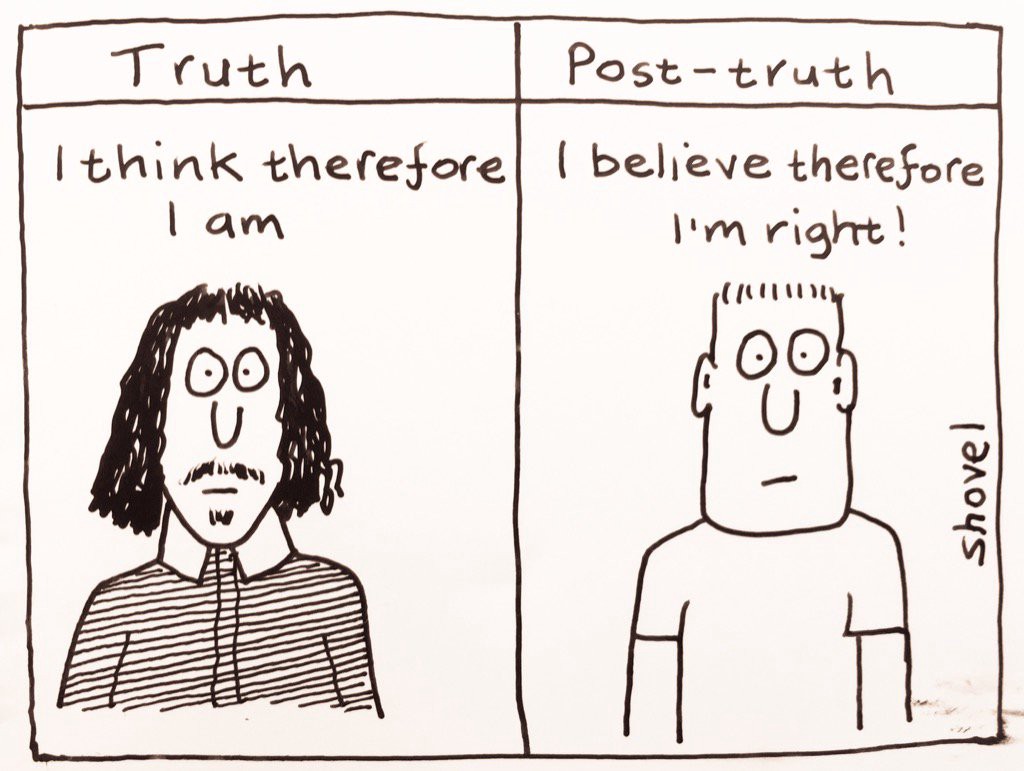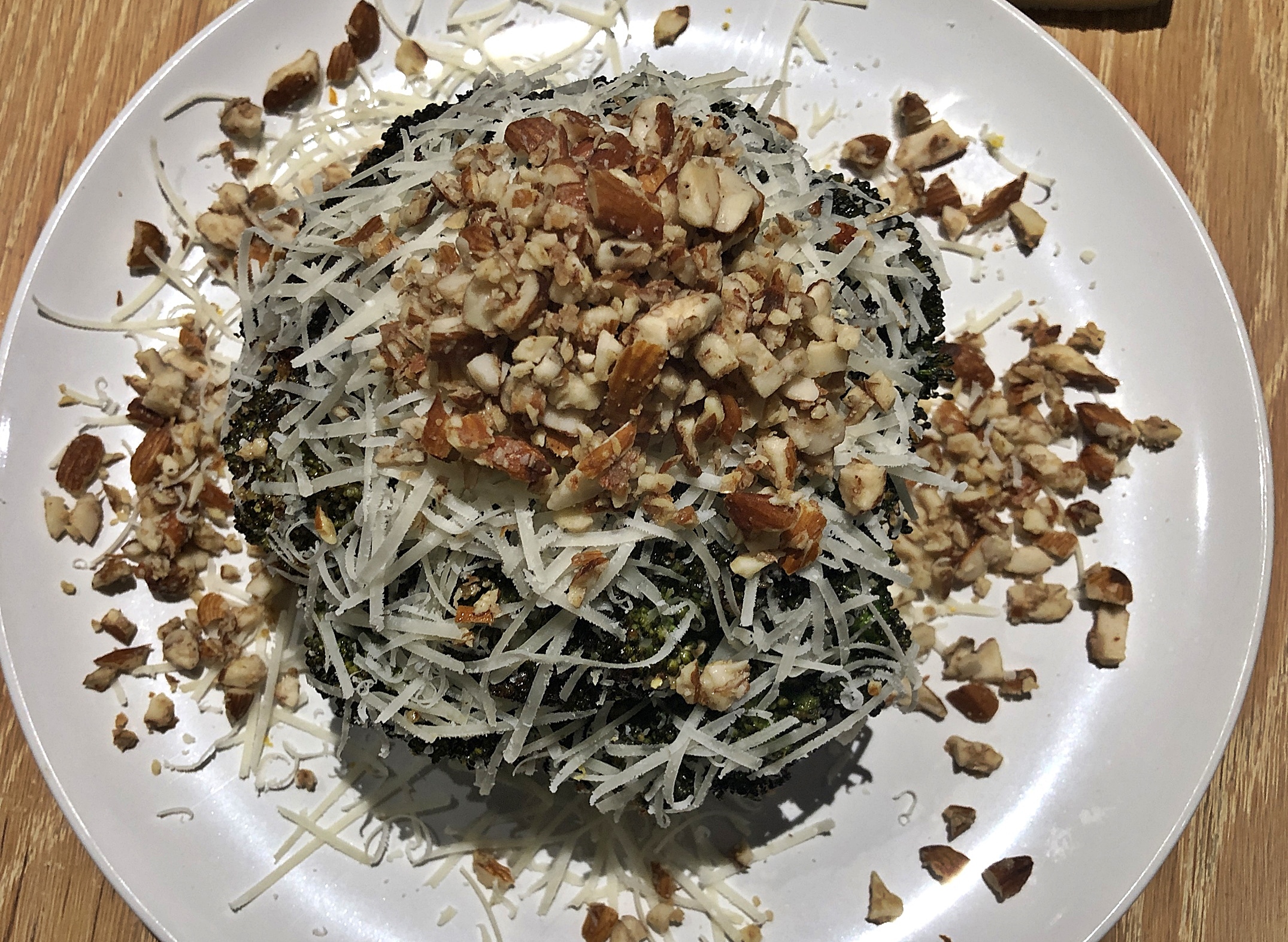Winning Arguments in a Post-Truth Era: Straw Men and the Worth of Truth (on a Steady Decline)
 (Image not mine.)
(Image not mine.)
Truth with a capital 'T' is somewhat controversial. Who says that the "truth" is the truth, and why can my "truth" not also be the truth with a capital 'T'? This essentially the problem today: everyone wants a "piece of the pie" when it comes to the truth. The above illustration (not mine) is probably the best representation thereof: my beliefs are correct, therefore it is the truth. If someone attacks my beliefs, i.e. my ultimate truths, they are attacking me, and if they are attacking me, I am "physically" being attacked, etc. There is nothing wrong with holding (false) beliefs, in a way it does not harm anyone. But holding false beliefs and then claiming that they are "truths" for everyone is dangerous. The claim of this article then is that we lost the value of truth because we believe that everyone is unique and therefore they can believe in what they want to. The problem is thus this: relativism (everyone has their own truth) is destructive to the value of truth and we should not aspire towards it.
Building a straw man can be a good way to destroy an argument you don't necessarily agree with. (A straw man argument is "an intentionally misrepresented proposition that is set up in such a way because it is easier to defeat than an opponent's real argument.") We see this all around us: people don't agree with an argument's conclusion, it does not fit their own narrative, therefore I need to destroy the argument. People draw straw men arguments because it is easier to defeat, and it mostly fit their own narrative "of what is true". This is, as mentioned, very dangerous and harmful towards the idea of truth.
The Problem
Claiming to have the truth, or trying to make other people believe in your truth, is controversial because we cannot know the truth. The problem, in a way, can be said to be with the idea or notion of "truth". The truth is somewhat powerful. When you have the truth you can stand in front of a million or more people convincing them of what you have is the truth; you can then control them because you are powerful because you have the truth. What is more valuable than having the truth? Once you (proclaim to have) the truth, people will follow you. But the truth is not something you can have or posses. This is because we, in a sense, don't know what the truth is. We can think that the truth is something you can intuitively know, but this is problematic. ("All killing is wrong", but what about war and self-defence?) What is truth then? Claiming to know what the truth is, is in a sense non-sensical. Is the claim to a truth itself true?
A Possible Solution to Winning Arguments in a Post-Truth Era
We can take a position of "suspending judgement". (The fancy Greek word for this position is epoché.) What this means is that we can say we don't know what truth is, we cannot say anything about truth because we don't know what it means. This in a sense seems very negative, how can we suspend judgement or belief about something as important as the truth? With the suspension of belief in the truth, we need to do research in gaining knowledge about the truth. But we need to suspend our judgement about truth. Once we confirm "yes this is the truth" we will stop our research and thus our gaining knowledge in that sense.
How do we win an argument then in the "Post-Truth Era"? We must first acknowledge that the idea of a "Truth Era" is non-sensical. We, in a way, never knew the truth. Claiming that you "know the truth about something" is problematic. What criteria do you use to "check if that truth is a truth"? And is that criteria you use also subject to the criteria, i.e. how do you know that the criteria you use are itself true (or correct)? This is the problem with claiming to know the truth: it boils down to an intuitive "feeling that this is correct" or "this feels better than the other option". When we say, thus, that we need to suspend our judgement about truth, we say that we don't have any criteria to test if this is the truth or not. What we need to do is research into knowing the truth, but with the bell ringing in the back of our heads that we can never know if we have the truth.
This does not open the door to relativism or pragmatism. Relativism and pragmatism state that there is no truth with a capital 'T', i.e. anything can be a truth. But this is not my claim: we need to search for truth, even though we may never find it. My claim is thus not that there is no truth, but rather that we cannot make a judgement about it. When we make a claim as to we live in a post-truth era, we presuppose that we had the truth. This is problematic because if we had the truth, why are we willing to believe in some falsehoods? This seems counterintuitive.
How can I thus win an argument in this supposedly post-truth era? By first not building a straw man argument. We need to suspend judgement about the truth. We should do research into what can be the truth, but never to claim that we have the truth. We cannot make the judgement about whether we have the truth because why do you say so? Are you going to build a straw man argument with criteria that seems only to be based on intuition? We need to say then that we are going to do research into the notion of truth: let us find out what it is? The truth seems more like a journey with no end. We cannot take a road that leads somewhere, because that road does not exist. It is a never-ending road that will lead to nowhere. But this is not negative. This is just the predicament we find ourselves in. So embrace the journey on the road to truth (even though we need to suspend our judgement about where to this road leads).









Comments